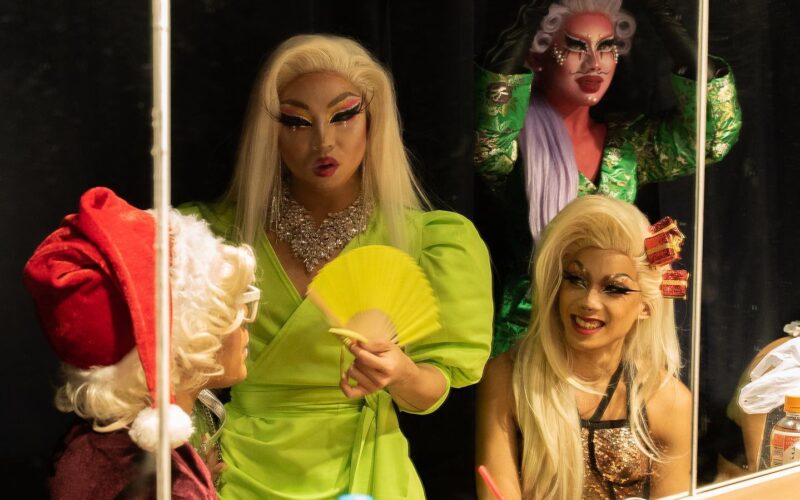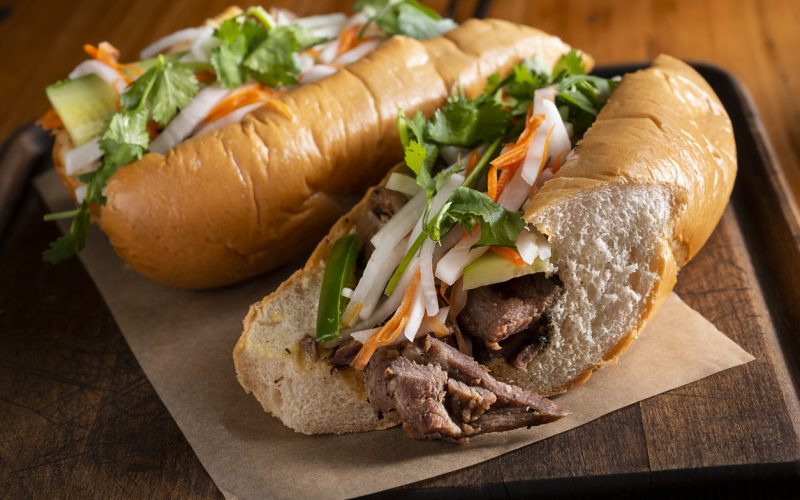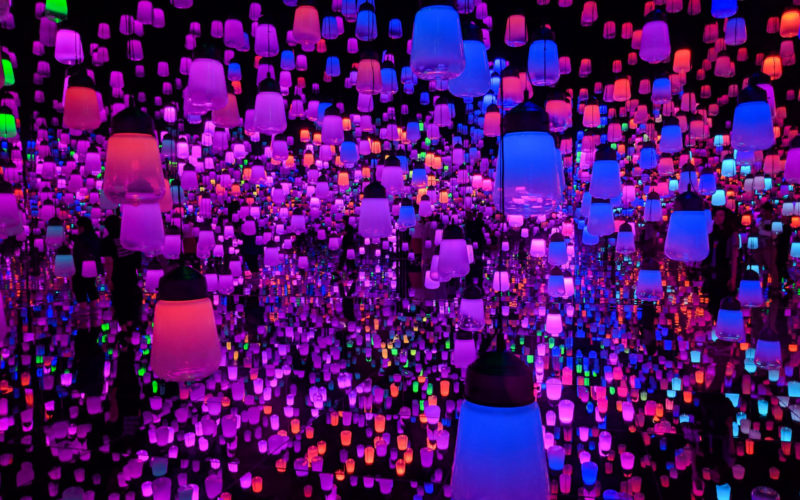Nerima
This Tokyo district's biggest claim to fame is that Japanese animation production was born here.
Take a sigh of relief because you’re in Nerima. Venture just 20-30 minutes away from central Tokyo by train into the tranquil streets of this neighborhood and experience a slice-of-life side of the city made for a day of urban exploration.
The residential area located in the northwestern metropolis surely can’t compare to the babes in the limelight of central Tokyo like Shibuya and Shinjuku. Yet Nerima’s allure lies in what isn’t: crowded, cramped or flashy.
Birthplace of Anime
Out of Tokyo’s 23 wards, Nerima is the fifth largest by square kilometers. Despite that, its only popular areas are Oizumi and Hikarigaoka. Nerima’s biggest claim to fame is that Japanese animation production was born here. Indeed, Nerima-based production headquarters were pioneers: Toei Animation made Japan’s first anime feature film, The Tale of the White Serpent (白蛇伝, Hakujaden), and in 1958 Mushi Production made Japan’s first anime series for TV, the massively popular Astro Boy (鉄腕アトム, Tetsuwan Atomu). Now, fans go to Oizumi-gakuen station’s Oizumi Anime Gate — a classic-anime hall of fame, and rumor has it that even Doraemon, Japan’s beloved character from the future, holds a residence in Nerima.
Sightseeing in Nerima
Aside from anime spots, visitors to Nerima can also enjoy Toshimaen, a peculiar retro theme park with a large water park, and oddly enough, a full-size golden retriever in its petting zoo. In winter, the park is gorgeously illuminated, attracting quite a few visitors and anime fans who come in cosplay to do photoshoots.
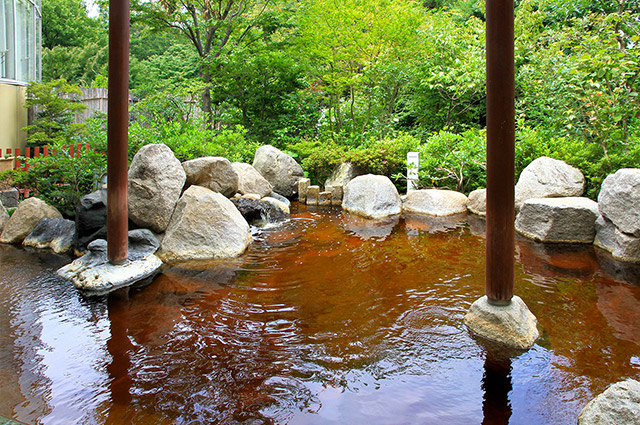
Photo by: Toshimaen Niwa No Yu Toshimaen Niwa No Yu
Next to Toshimaen is one of the few onsen in the Tokyo metro area with actual spring water, Toshimaen Niwa No Yu, which is conveniently located just a 15-minute walk from Nerima station. In spring, Shakujii Park and Hikarigaoka Park are lovely (and less crowded) spots to view the stunning cherry blossoms. You can also see lotus flowers in early summer at Shakuji Park.
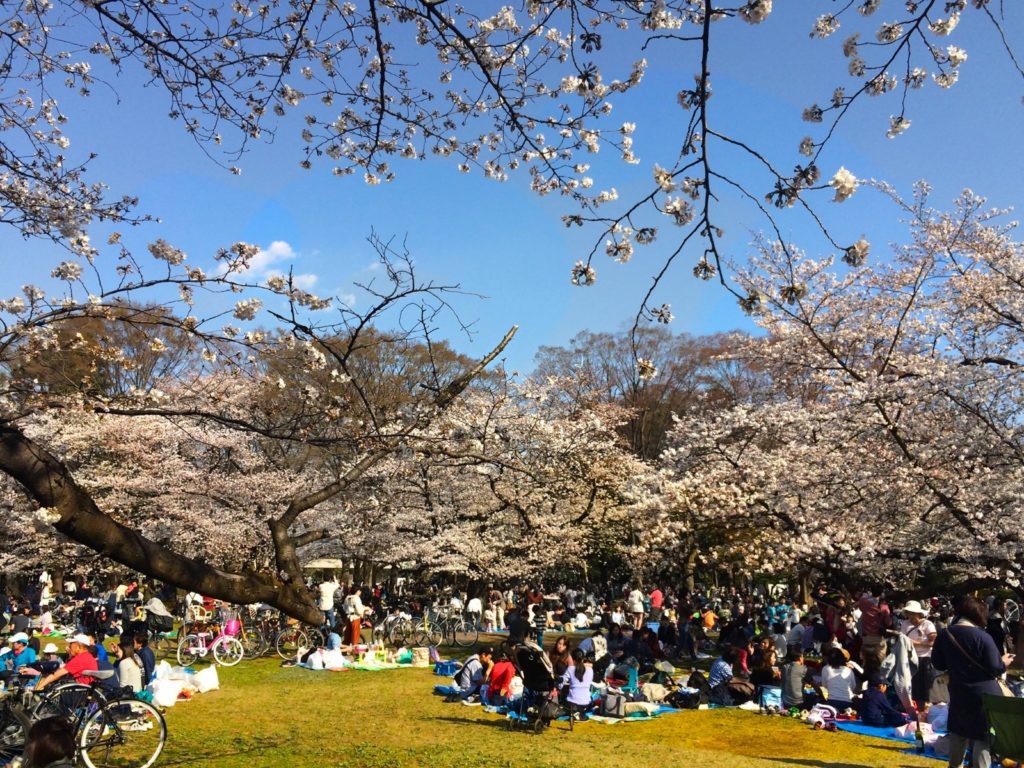
Photo by: Victoria Vlisides Hikarigaoka Park is a lovely place to visit in spring when the sakura is in full bloom.
In the background of all these relatively known locations hide Nerima’s ultra-local hidden gems that are worth a visit.
Chuo Street and nightlife
With a lack of shopping and fashion, Nerima trades that for a great food selection, green space and local shops.
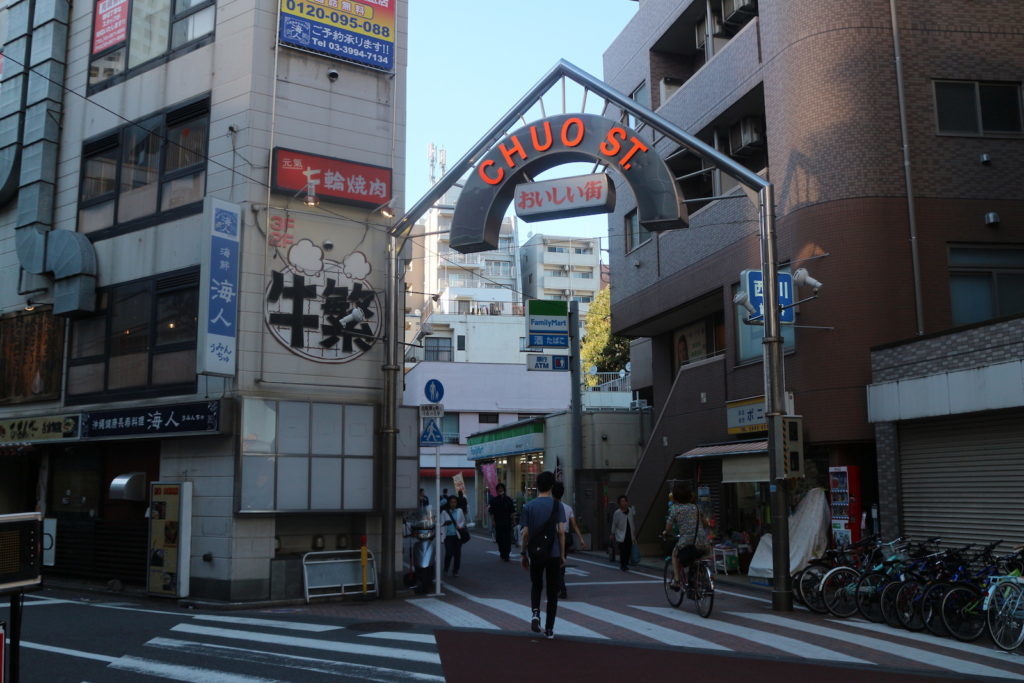
Photo by: Victoria Vlisides Chuo Street just outside Nerima station.
Start your Nerima journey at Chuo Street just outside Nerima station, a pedestrian street that serves as the main food area near the station. A walk through here and its surrounding backstreets takes you to a number of other dining and drinking destinations. There are all your favorites: izakaya, yakitori and yakiniku, sushi, noodles and a family-owned tonkatsu (fried pork cutlet) shop, to name a few.
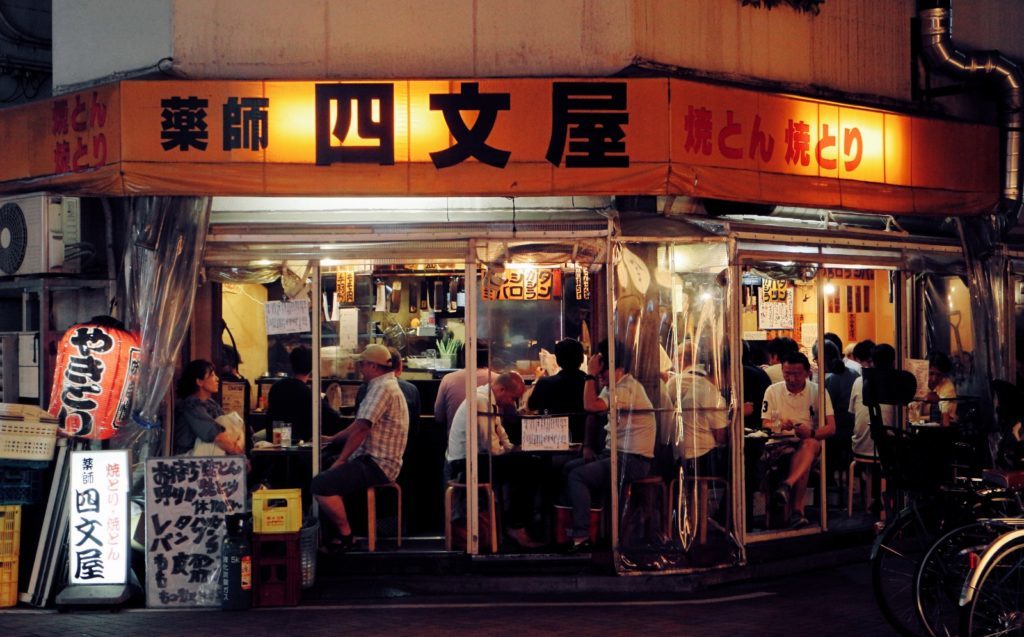
Photo by: Victoria Vlisides Awesome yakitori joint on Chuo Street.
If you blink, you’ll miss the nearby fun-sized standing bar Chu-hai Stand Renya from a local business owner who is friendly and also speaks a bit of English. Order the smooth-tasting and highly recommended oolong-chu, which is made by soaking imported Taiwanese tea leaves in shochu (the equivalent of Japanese vodka.)
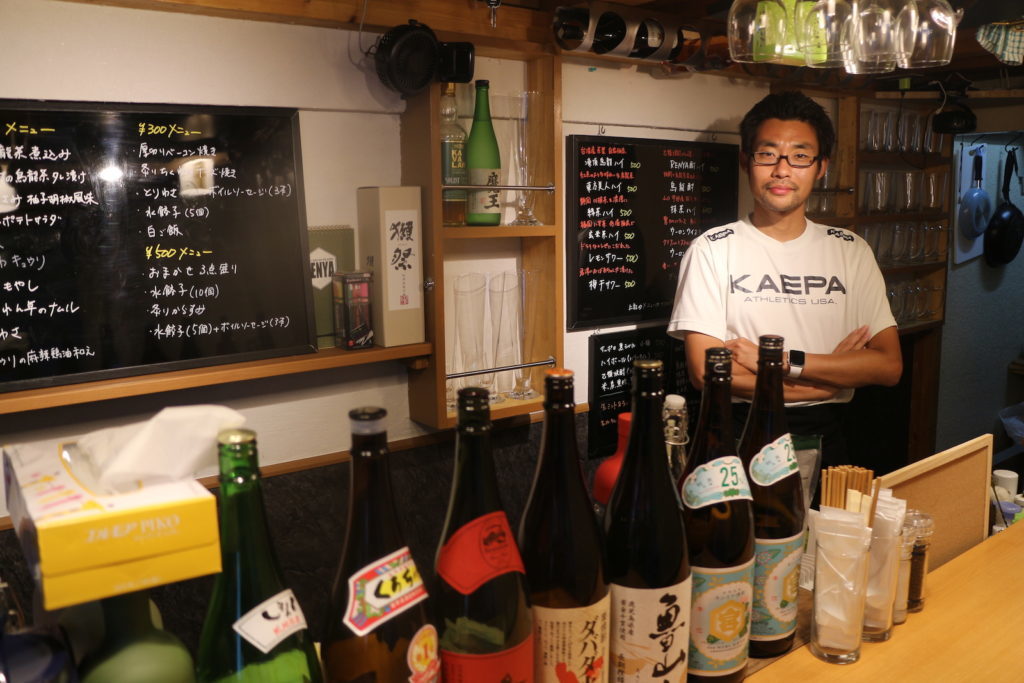
A date with Chu-hi Stand Renya.
Just down the street from that is an English Jazz Bar (Cafe 52), a place that mixes melody with language exchange and bilingual nightlife. This is a surefire way to meet some locals who want to speak in English while sharing a drink or two.
Food and drink
Garden cafes
A stroll southwest from there reveals pockets of fresh air in Nerima’s parks, community gardens, grape vineyards and garden cafes.
Meandering past mini-shrines and residential homes get you to Garden Square — one of Nerima’s most beautiful venues with relaxation potential through the roof. With vines growing up the two-story building, this secret garden defines the term “hiding in plain sight.” Walk right in past the hanging plants, even if you’re not dining.
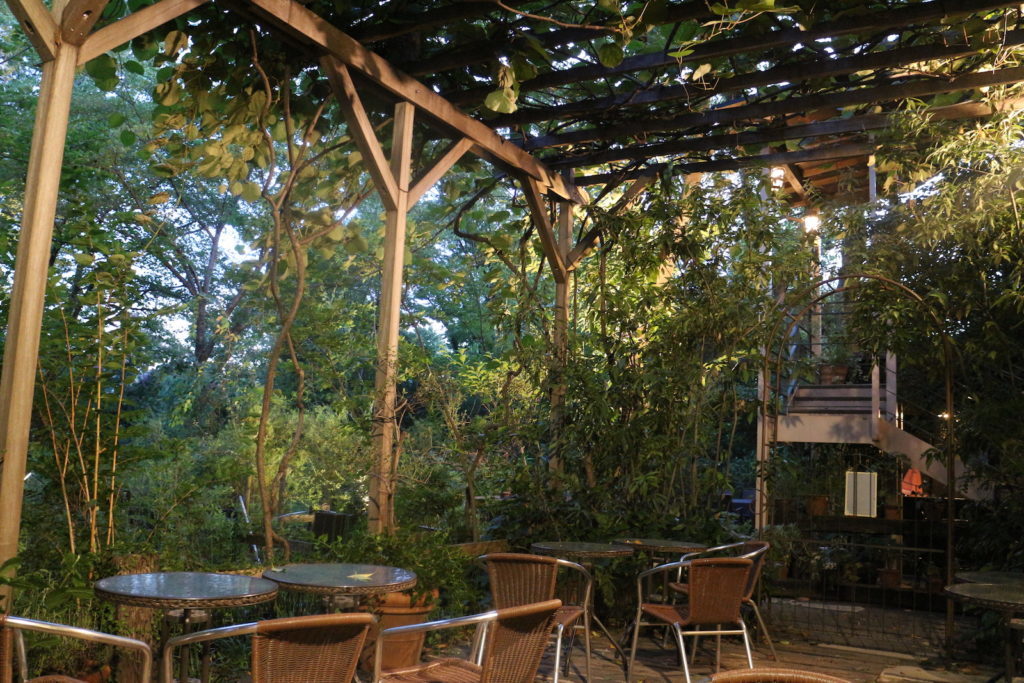
Photo by: Victoria Vlisides A terrace with a view at Cafe Felice.
During the spring, you can feast on fresh pasta and sip wine while enjoying the cherry blossoms from the second-floor view at LaVentura, or on a crisp autumn evening, partake in a quiche, panini of the day and homemade melon soda float while basking in the garden terrace at Cafe Felice.
Garden Square is typically a crowd-free optimal hangout, and they even have free wifi. But, Nerima has a second garden cafe. Shibuya Engei is a large garden center where you can buy potted flowers and plants big and small. The accompanying cafe, Jugen, with homemade cakes, parfaits, pasta and pizza as you partake on the outdoor patio or in the vintage wooden interior.
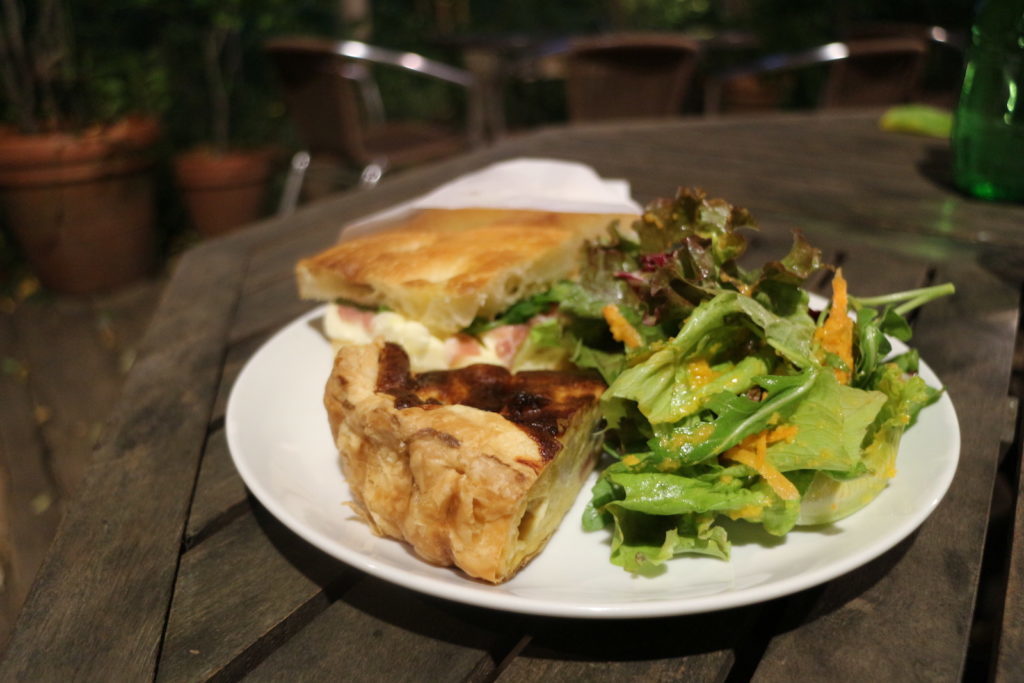
Photo by: Victoria Vlisides Panini and quiche at Cafe Felice.
As an aside, another unique cafe to Nerima (if you don’t mind cigarette smoke though!) is Cafe Andes, a Showa Era coffee shop where the walls are lined with antique books, comics and magazines.
Go fishing
Don’t leave Nerima without trying its unique fishing culture right in the middle of the big city. Catch and Eat is a restaurant where you dine on seafood karaage and tempura — after you catch it. Go fishing in the small pool for ¥1,000 an hour and then eat it on the spot after the chef cooks it up for you.
One-coin Fishing Hole is a unique indoor “fishing” spot in the middle of the city and a local favorite. Here you can pay “one coin” to put in a bobber and catch some goldfish. The atypical gold fishing experience will probably make a great conversation piece for later.
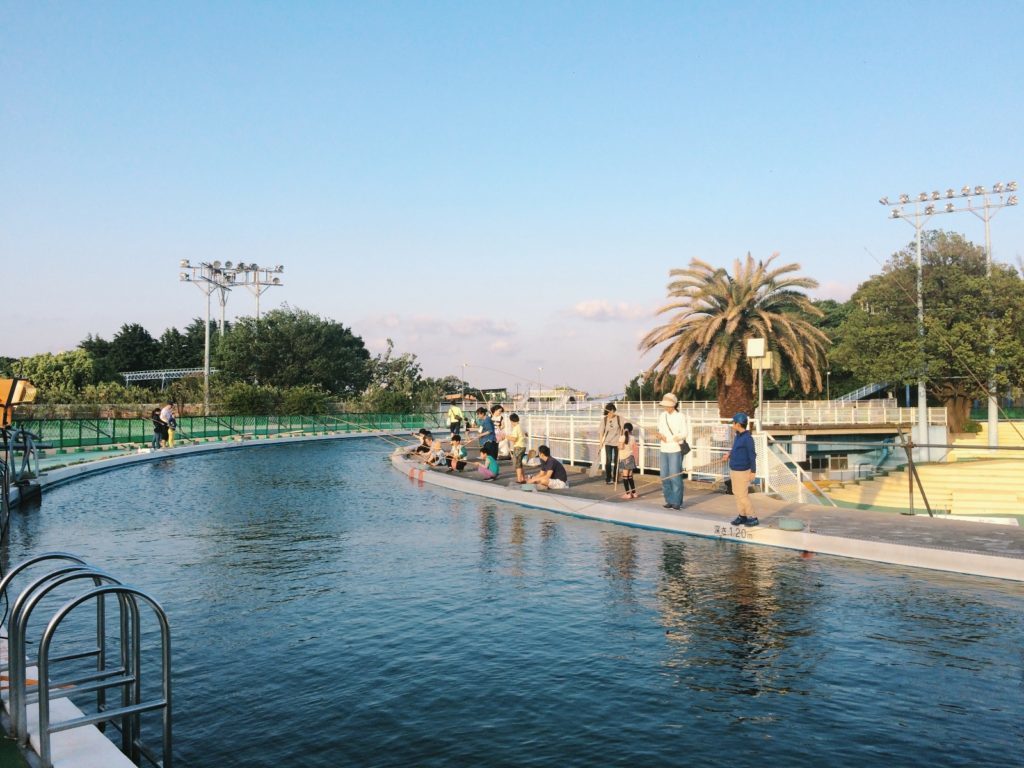
Photo by: Victoria Vlisides Fishing at Toshimaen amusement park.
Last but not least, the Toshimaen Fishing Area is a place you shouldn’t miss. Remember that theme park that doubles as a water park, Toshimaen? If you ever wondered what it would be like if, on the offseason of a water park, they turned it into a fishing pond, well, you can experience just that here. Pay a fee and rent gear to go fishing without ever leaving the city.
The original version of this article appeared on our sister site, Savvy Tokyo.
Topics: anime and manga, nerima, tokyo, tokyo neighborhoods
